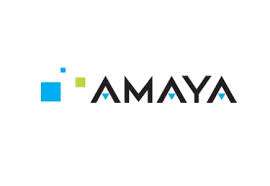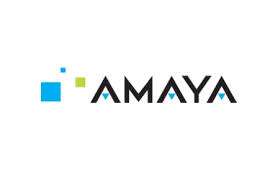Amaya Issues Statement as Quebec Insider-Trading Investigation Continues
Canada-based Amaya Gaming has issued a statement regarding certain elements of an ongoing insider-trading investigation centering on Amaya’s puchase last year of PokerStars parent Oldford Group, following the lifting of a publication ban on a warrant issued last year by the Autorité des marchés financiers, or AMF, the Quebecois financial regulatory agency conducting the investigation.
 Numerous documents were released as part of the lifting of the ban, although the documents have yet to be fully released to the public. Among the documents, according to a Toronto Globe and Mail update, was an approved search warrant that allowed the AMF to seize “computer memory cards, data keys and other storage devices used by three Amaya employees. As the G&M noted, the identities of the Amaya employees were redacted in the document.
Numerous documents were released as part of the lifting of the ban, although the documents have yet to be fully released to the public. Among the documents, according to a Toronto Globe and Mail update, was an approved search warrant that allowed the AMF to seize “computer memory cards, data keys and other storage devices used by three Amaya employees. As the G&M noted, the identities of the Amaya employees were redacted in the document.
Similar search warrants were also executed last December against two other investment companies: Canaccord Genuity Corp., which served as Montreal-based Amaya’s lead financial adviser in the massive PokerStars acquisition; and the Dorval (adjacent to Montreal) branch of Manulife Securities Inc.
Amaya’s statement, issued yesterday, declared, in part:
… The release of the redacted documents presents nothing new to Amaya. Amaya has previously received the redacted affidavit and reviewed its limited contents and did not contest the court’s decision today. It will wait to see the actual unredacted affidavit, but it does not believe there is a reasonable basis for proceedings against Amaya or its employees.
Ben Soave, retired Chief Superintendent of the RCMP, a member of Amaya’s Compliance Committee and an advisor to the Board of Directors since 2012, said: “We have thoroughly reviewed the relevant internal activities around its acquisition of Oldford Group and have found no evidence of any violation of Canadian securities laws or regulations including tipping and insider trading by CEO David Baazov and CFO Daniel Sebag. Additionally, the company has not been provided with any evidence that any executives, directors, or employees violated any securities laws or regulations.”
The AMF investigation has not resulted in any proceedings and no charges have been filed. The company is confident that at the end of the investigation the AMF will come to the same conclusion as Amaya has — that if there were violations of Canadian securities laws, they were not committed by the Company, officers or directors. …
Though Baazov and Sebag were asserted by the G&M feature to have had documentation relative to the investigation seized, it remains unclear whether the reference to the three Amaya “employees” includes the two high-ranking execs. Amaya remains under a court-ordered gag in connection with ongoing elements of the investigation, and has been unable to offer specifics despite its general claims of innocence.
The G&M feature, though PokerStars and Amaya as the primary focus for their interest-grabbing potential, still seems focused primarily on the investment firms assisting Amaya in assembling a financing package. As duly noted, the case first came to AMF attention via information from an unidentified Manulife employee who blew the whistle on several co-workers.
Per the G&M story:
One of the whistleblowers is identified as an employee at Manulife. The AMF search warrant cites a so-called gatekeeper report by Manulife to the regulator that uncovered “manipulative and deceptive” activities involving Amaya’s stock by a group of more than a dozen employees in its Dorval branch, located near Amaya’s head office. Manulife tracked trading by the employees from the initiation of takeover talks in December, 2013, to the June takeover announcement.
According to sources, the targeted Manulife employees are brokers and broker assistants.
Thus, the inclusion of certain Amaya executives in the general case should be expected. An acquisition such as Amaya’s takeover of PokerStars, a company several times larger than itself, could not be accomplished without detailed information traveling throughout all sorts of investment channels. AMF investigators must necessarily throw a broad net over all possible links to determine the point or points where regulatory breeches regarding privileged information occurred.


















COMMENTS